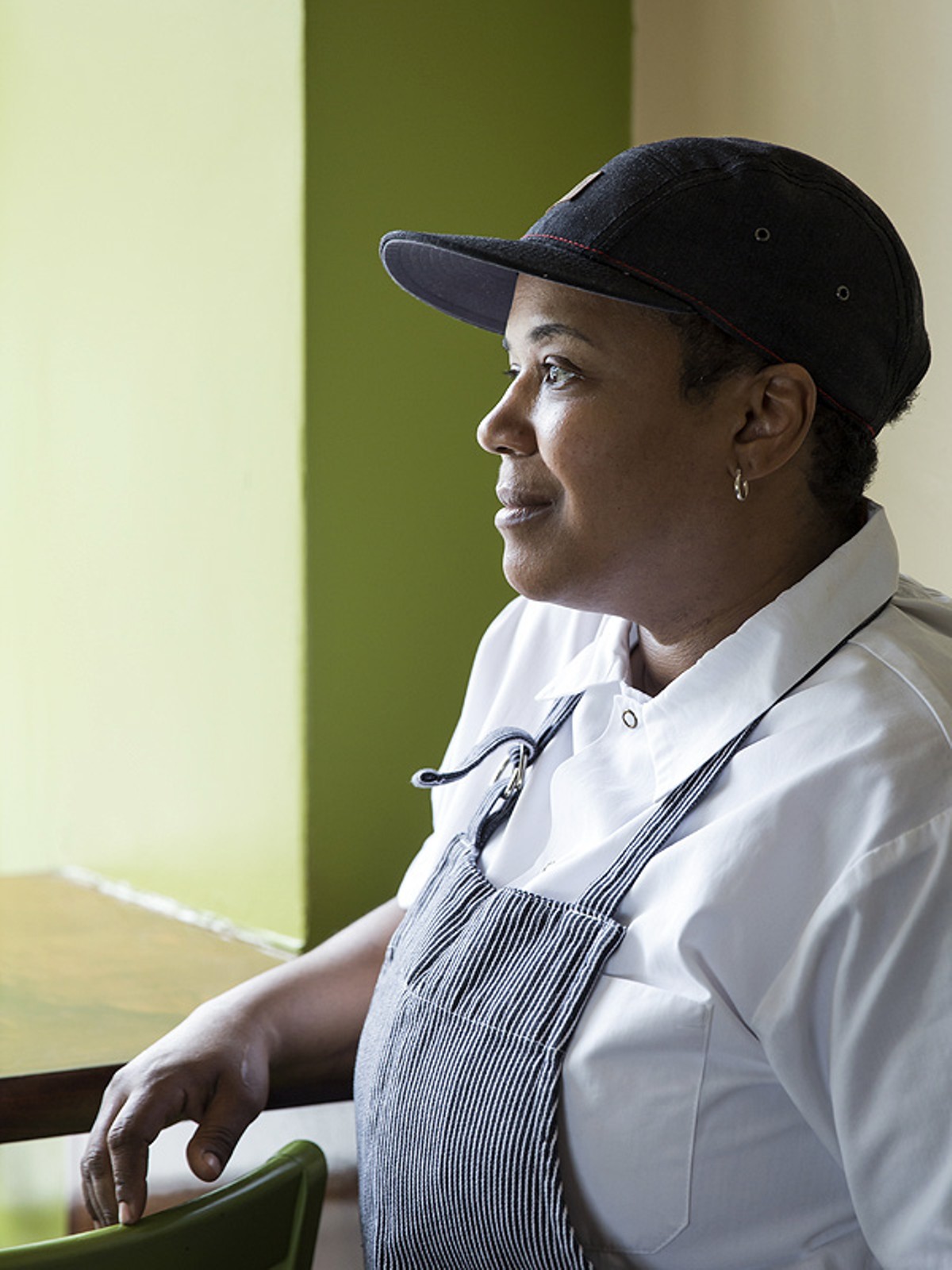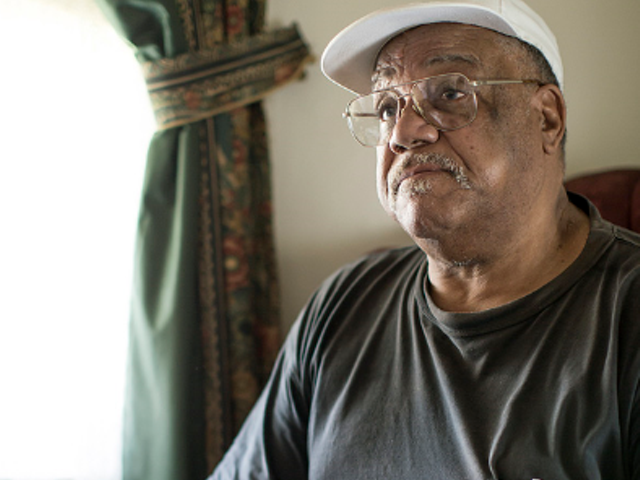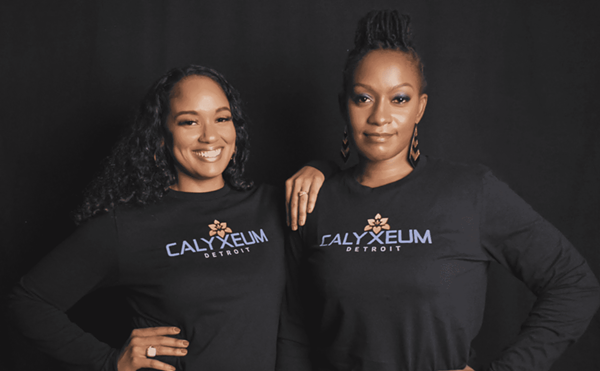On a sun-splashed morning on Agnes Street in the West Village, 41-year-old Detroit Vegan Soul co-owner and chef Erika Boyd is in the dining room, composing herself for another busy day. The row of storefronts surrounding the restaurant was empty just a couple years ago; today, it hosts a coffee shop and an upscale restaurant.
A native of Detroit's northwest side, Boyd has made her home in West Village for more than a decade now, and lives around the corner with her life and business partner, Kirsten Ussery. It's been a long journey for the couple. Boyd has done hair care and designed handbags; Ussery has a background in public relations, which Boyd says has "served us well."
Several years ago, they began hosting pop-up dinners under the Detroit Vegan Soul brand and developed so many fans that they were able to open the brick-and-mortar eatery almost two years ago, the first new business on the block in years.
Boyd knows a thing or two about soul food. She grew up eating not just any soul food, but that of her grandmother, Doretha Hall, a native of Dublin, Ga., who was known citywide in her day for her food.
Despite her love of the cuisine, Boyd is frank about the health problems it can present, what with its emphasis on animal products.
"Hey, soul food is great. We grew up on soul food. But, today, we can have soul food that can be healthy," she says. "We're talking about a lot of whole foods, so we're talking about collard greens, yams, turnips, mustard greens. Soul food in itself isn't bad. How we had to prepare it at one time wasn't the best. But it can be made with quality ingredients."
The food at her restaurant is plant-based, organic, and sourced as locally as possible. That emphasis on locality extends to the location they chose for the eatery.
"We don't just happen to be located in a neighborhood right now; we like to be in neighborhoods. Why? Because it's nice to walk to someplace nice in your neighborhood, to not have to gas your car up and drive someplace to get a good healthy meal," Boyd says. "The other reason is accessibility for all people. All people don't have cars. All people don't have the same level of accessibility to healthy food and to the wholesome food to eat."
Boyd doesn't just see the healing coming from her healthful food, but coming from inclusion, an inclusion she hopes will be in the DNA of Detroit's revival. She stresses that a lot of talented people never fled the city, and they're eager to participate fully in its resurgence.
With a buoyant smile, she says, "That's what it's about — healing people through food, but also about healing a community. So many places you go into in the city, you see either all black people or you see all white people. There are very few places that you come in in the city and you see all people."






